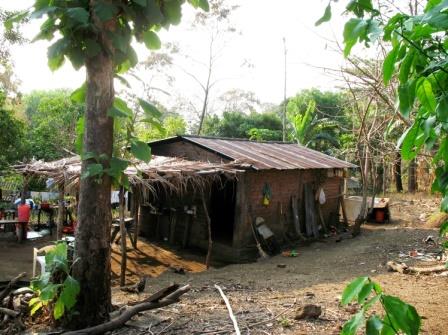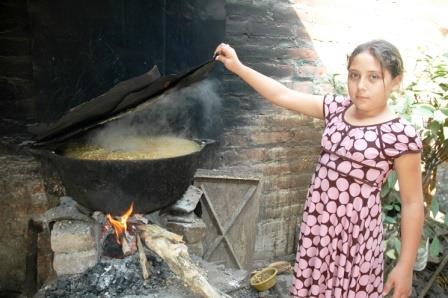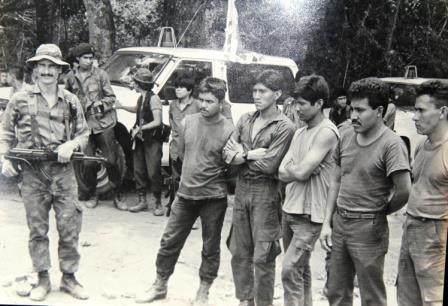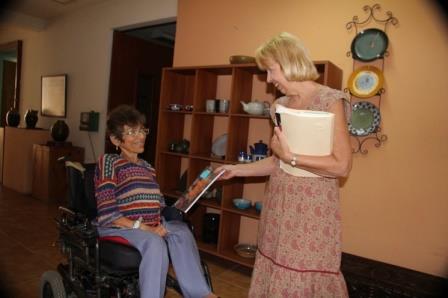MELTDOWN OF 3’S – AT 3 AM, AFTER 3 WEEKS, POST 3RD TRIP
MELTDOWN! Fatigue may have played a part in it because it was 3 AM when I walked in the door from the airport. After spending three weeks in El Salvador, something overcame me as I collapsed onto the living room couch, looking around at all my STUFF, and cried and cried, and cried uncontrollably for the next two hours non-stop. I couldn’t adequately verbalize my feelings. I just sat there gazing at all my possessions acquired over the years in my comfortable middle class American home. As much as I have always enjoyed my home and its contents, I certainly do not need all this STUFF to survive. Guilt and embarrassment for living such an abundantly extravagant lifestyle hit me like a Mac truck. This emotional meltdown was a reaction after returning from El Salvador where person after person invited us into their dwellings built of whatever odd pieces of bundled sticks, palm fronds, corrugated tin, and plastic tarp they could gather and assemble to shelter their families from the elements. I remind myself this was not my first or even my second trip to this country. I guess it was the cumulative effect that got to me.

But to go back a trip or two, in previous trips there were times of “built-in” adjustments to the realities we witnessed daily. Each night despite our fatigue and just wanting to hit the pillow before another long day of walking in accompaniment with Salvadorans in a new place, the group got together in formal reflection. It was led by clergy or delegation leaders or a combination. We all shared around a central question, and I realized long after I returned home how important that was each night. It was a time to decompress and compare our perceptions of the day’s experiences. On the last night we each wrote a letter to ourselves which was placed in a sealed envelope and mailed to ourselves one year from that date. In that note we did a deep self-reflection of how we had been transformed as a result of our experience. I had totally forgotten about that exercise until it arrived in the mail a year later. What a poignant reminder of what I had been thinking and where my mind had gone in that year’s lapse of time.
This trip had an entirely different objective to it. It was self-designed and tailored to the ongoing project of what Salvadorans refer to as “historical memory”– choosing persons to interview and write their stories. During these three weeks we had interviewed nearly 30 Salvadorans. Each individual had honestly and candidly shared his or her intimate, heartfelt personal story. During the interviews we hung on every word shared and totally connected to each person and his situation in order to engage, interact, and ask appropriate questions. Your mind cannot lose focus for a second in order to keep the rhythm of the interview flowing. These people are sometimes mopping sweat and tears with a towel, wringing their hands with eyes welled in tears as they share letters, photos, 30 year-old brittle newspaper clippings, details of abuse, torture, grief, joy, hope, and loss. Although I have prepared questions in advance based on research, we often need to go off in a totally different direction during the interview. Some of the details are too personal or too delicate to print and will remain etched deep within our minds. Yet these individuals opened themselves up to share them. It is intensive work. At times it was necessary to stop, take a break, offer a glass of water or an outstretched hand or a tissue or a hug. The level of trust that developed during these long, weary interviews was crucial to the process. Some of these individuals had shared their stories many, many times. Others had never before been asked to do so and felt a burden they had been carrying for years lifted. To be asked to share was a privilege for the Salvadoran; to record that story was a deeply humbling privilege for us. On one occasion the person retracted the story from publishing once seeing it in print citing that while it was comfortable to share it verbally, it was uncomfortable knowing others may read it.
My body may have returned to my home at 3 AM, but my heart and soul remained thousands of miles and a time zone behind. As I researched what I was feeling, I discovered that I was not alone. This “reverse culture shock” or “reverse homesickness” I was experiencing is quite common. Soldiers, study abroad students, and mission trip participants commonly experience difficulties returning home. I’ve read that the adjustment is actually more acute for those making short-term mission trips rather than long-term ones because the experiences are so intense and the emotionality is so life-transforming.
Witnessing contradictions in the world is hard to know how to address. You experience the great divide between the “haves” and the “have nots”; you discover the ugly truth that your government has been implicitly involved in sending military aid to allow human rights violations by the thousands which no one ever told you about; you see the church turn its back on the marginalized people it is called to serve. Your whole value system is turned upside down. And yet, these people we meet don’t crucify us for being an American which is amazing in of itself because they KNOW these truths that we have been shielded from. Instead, they embrace us. (Thus the choice for our second book’s title: Embracing the Salvadoran Spirit.)
For me personally, beyond the whole 3 AM initial consumerism meltdown I experienced, my ongoing frustration continues to be the attitude of others who do not share a concern for the needs of persons living in developing countries. It is that apathetic attitude that generally greets me when I return from El Salvador with “I bet you really appreciate what you have now, right?” rather than “What can we do to help?” It can easily put a wall between me and “them” if I allow it.

Instead I try to channel my thoughts and actions in a two-prong direction. First, I am needing to allow myself time and patience with others who have not shared my experiences and never will; nor will they likely ever share my feelings. Rather than point the finger at those persons who are easy targets, I am trying to find ways to challenge myself to raise their awareness, to open their eyes to see the injustices in the world; to help them be a bit more sensitive to the situation in which other cultures and socioeconomic groups live, and to help them learn ways they can make a difference in addressing some of the many, many needs that exist in our “glocal” world.

I am still learning these things myself, and I remind myself that about a dozen years ago prior to my first trip to El Salvador, I too, shared the same apathetic attitude.

Secondly, even though it is only one tiny dent and barely of notice, if at all, by staying in regular communication with our Salvadoran friends, by accompanying them in their struggles and joys, by making trips regularly, by supporting them financially in programs including scholarships and micro-loans, by writing our legislators regarding issues that relate to their needs, and by faithfully telling their stories– these are ways I can try to assert myself on their behalf.
We are three weeks from our next trip to El Salvador. Hmmm.
Kaled Hosseini’s character tells about returning from Afghanistan on p. 163 in And the Mountains Echoed, “Kabul is . . .a thousand tragedies per square mile.” The response is, “Must have been quite the culture shock, going there.” “Yes it was.” Idris doesn’t say that the real culture shock has been in coming back.
Post-script: When I shared this story – the first paragraph– with a dear Salvadoran friend, his response was, “you were not experiencing guilt. Guilt paralyzes you. Look at the great project you are doing. If you were in guilt, you would be unable to move through your emotions.” I like this guy.


